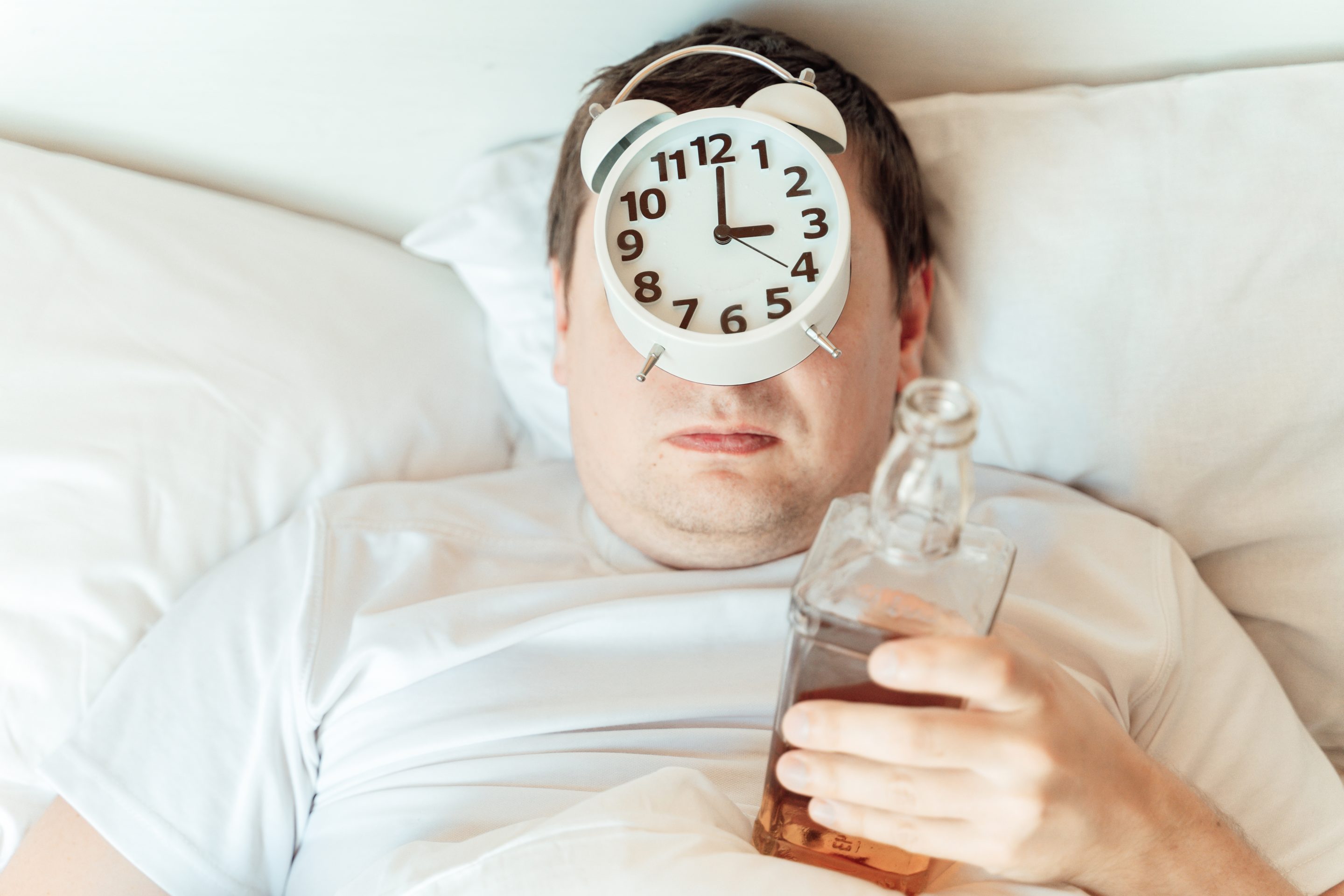Drinking alcohol after a hard working day is what many people do to relieve their stress and, hopefully, have a good night’s sleep. Many people also choose to drink in the evening because most of them are free and can enjoy the moment without worrying about any work. Drinking occasionally is said to be good for our health, but what if we want to drink every nighttime? How does this affect our bodies?
Table of Contents
ToggleHow Alcohol Affects Our Body?
Andrew Misell, Director for Wales for Alcohol Change UK, said in an article that alcohol is considered a depressant or sedative. This means that our bodies will be slowed down the moment they enter our system. If not taken in moderate amounts, alcohol will affect us both physically and mentally. This will limit our comprehension and movements, affecting our bodies and everyday lives.
This will affect us psychologically by stirring our emotions and feelings while we drink. Misell confirmed the known drinking phenomenon where we became honest and told our co-drinkers what really is in our minds or what we really want to say, which can affect our relations with them.
Physically, our body will make us feel signs of too much drinking, like dizziness, impaired balance, slurred speech, a hangover the following day, and many more. Over time, severe health implications might develop, like various cancers of the mouth, throat, and esophagus, liver cirrhosis or damaged liver cells, pancreatitis (inflammation of the pancreas), high blood pressure, and many more.
Many factors can affect how our body reacts to alcohol which is discussed in this article, along with other pieces of information that you should know before you drink out of control.
The Proper Amount of Alcohol Intake Per Day
According to an article by the University of California Santa Cruz, there are many health implications when we drink above what is said to be the standard drink or the amount of alcohol that we should consume per day to avoid minor to severe health problems later on.
As stated, the standard drink contains 14g of pure alcohol, which can be found in the following: 12 ounces of regular beer with 5% alcohol (other kinds of beer have different alcohol levels), 5 ounces of standard or table wine with 12% alcohol like champagne, 3 to 4 ounces of fortified wine with more than 13% like port or sherry and 1.5 ounces of distilled spirits with 40% or more alcohol like gin, vodka, whiskey, etc.
Drinking more than this will make it hard for our livers to metabolize the excess alcohol, which will make it circulate continuously all over our body through our bloodstream. This will lead to alcohol affecting all our organs and damaging some of them over time.
Is Drinking At Night Better Than Drinking During Daytime?

According to Nyree Dardarian, a professor of nutrition sciences at Drexel University, discussed in an article that there is no significant difference in how our bodies process alcohol during the daytime or at night. She said that our bodies metabolize food 24 hours a day which means that there is no particular time of the day when we can minimize the effects of alcohol. Drinking during the daytime, though, can affect us more than drinking during the night.
Misell discussed in the said article above that drinking during the daytime affects us more than drinking during the night, and this take can be explained through 3 factors. First, drinking during the daytime feels like we are doing something unlawful or irresponsible that’s why we can easily notice the effects of drinking alcohol. Why?
It’s because we might have something to do during the day, like going to work or attending to something or someone, but instead, we drink. The sense of guilt can make us notice that we are drunk because we think that our drinking can make us unproductive. We will not feel this guilt during nighttime because, except for those who work during the night, we are designating this period of time to rest and sleep.
Second, we tend to easily notice the effects of drinking alcohol when we have some work to do afterward, as discussed in the first factor, because it will be almost impossible to accomplish the said work when our body is not functioning properly. As discussed above, alcohol intoxication will make us lose our sense of balance, sense of judgment, and comprehension, along with other symptoms. This will make us realize that we are really intoxicated, which in turn makes us more and more drunker over time.
The third and final factor is the fact that most of us drink during the night because it is more convenient for almost everyone’s schedule, as discussed in the previous factors. When we drink with many other people, we won’t really notice that we are drunk, except if it really becomes worse.
Maybe because of the constant talking and laughing with them that we don’t realize our current state, and thus, it makes us less drunk. When we drink and see other people still sober due to not drinking alcohol, we tend to compare our condition to theirs, which makes us notice our own drunkenness, making it worse.
These are all the factors that might make daytime drinking worse than when we drink at night, along with other factors that will determine how quickly we become drunk or how alcohol affects our body, as discussed in our previous article.
How Does Alcohol Affect Our Sleep?

We can sleep during the day, but we mostly sleep during the night. This is the time that we designate to rest our bodies from long hours of work in order for us to continue working the next day. This was also programmed in our body clock, so in order for our body to stay healthy, we need to sleep at least 8 hours per day. One of the things we do in order for us to sleep quickly or sleep soundly is drinking alcohol.
As discussed above, alcohol is considered a depressant or sedative, which in turn makes our body weak and unproductive. It can be helpful in some individuals, but generally speaking, it won’t really help that much. This means that we might even experience difficulty sleeping or frequent sleep disruptions.
According to an article by Sleep Foundation, these difficulties in sleeping occur because alcohol quickens an individual’s sleep onset, which makes them sleep quickly, interrupting the balance or flow of the stages of the human sleep cycle.
Your body will spend lesser time on stage 4, or the Rapid Eye Movement (REM) stage of sleep, where your brain and heart, and breathing rate will increase from their lowest point, and more time on stage 3, also known as slow-wave sleep, where the brain activity, breathing, and heart rate gets to their lowest point.
This unbalanced sleeping pattern results in shorter sleep durations and constant sleep disruptions. Of course, this will depend on the person’s overall condition and the level and amount of alcohol that he or she consumed. Constant sleep deprivation might develop into insomnia or a serious hangover the following day.
According to the National Institutes for Health, as discussed in an article, we should stop drinking alcohol 4 hours before heading to bed. This depends, though, on how much we drink, but that span is the standard. Amanda Frankeny, a registered dietician, explained in the same article that drinking close to 4 hours before bed can create bad drinking symptoms like difficulty in breathing, headaches, sleep disruptions, and many more so it is strongly advised not to drink during that duration.
Conclusion
As discussed above, there is no significant difference in how our body metabolizes alcohol when we drink at night or during the day, meaning its effects will be the same throughout the day. What is widely known is the fact that drinking too much will create negative consequences in our bodies.
There is a certain amount of alcohol that was set by health professionals that we should only drink per day or in a week, and we should always follow that standard in order for us to stay healthy. This means that drinking every day or every night should be avoided.
Drinking at night can also affect your sleep, so it is not advised to use alcohol as a tool for you to sleep quicker. Yes, it does the job, but what happens later on will make you regret your decision, as constant sleep disruptions will transform your comfortable rest into a terrible nightmare.

I am a passionate beer connoisseur with a deep appreciation for the art and science of brewing. With years of experience tasting and evaluating various beers, I love to share my opinions and insights with others and I am always eager to engage in lively discussions about my favorite beverage.
















